Sunday, 26 March 2023 // Burning
7:51 AM
Am actually clean-shaven for the first time in years, and in my Sunday finest, at the LINNIX** offices, for internet connection, before I head off to church in Tabwakea.
I am not a churchgoer by a long shot, but so much of society here is based around the many Christian denominations, and churches are where so many parts of society and culture here combine. It’s a great way to meet people, and make connections. So far, so good.
** LINNIX: The Ministry for Line and Phoenix Islands Development (MLPID, also known as port-manteau LINNIX.) The LINNIX offices — administration for the Minestry for the Line and Phoenix Islands — are in London, Kiritimati. They include customs, education, planning There is a ship, the cargo landing vessel CV LINNIX, that plies the waters between the island, making semi-regular visits, known as the LINNIX ship.
______________//////|__________________//////|__________________//////|____
1 PM
90°
London
Long before we could see it, we could smell Kiritimati.
We had been under sail for almost two weeks from Honolulu, due South, 180°, 179°, 160°, adjusting our course with the beam wind. Or should I say, winds.
The trade winds were in high 20 knots range, except when they punched into the 30s, almost gale force. And then we hit the doldrums.
I have always imagined the doldrums, and they were never like this. To my mind, it meant a listless boat, no wind, and relentless sunny skies. We had little or no wind when we hit the doldrums, but it was not sunny. It was gray, rainy. Miserable. Not the respite from “winter in the Pacific.”
We had been looking forward to the doldrums, especially when we were on watch long after midnight and before sunrise, following the dagger in Orion's belt straight south, the constellation immediately overhead, or aligning the Southern Cross with our mast and any number of lines, that we keep our bearings in the dark, and not have to stare at the glow of the damn digital compass, almost mindless with fatigue.
The digital compass is fine, works great. And one anticipates having to wheel to starboard or port, during the day, as you can see the rollers and waves coming from the port. But at night you see nothing.
Nothing.
You only feel it. Feel the wind, the waves, timing them.
You only see the light of the digital compass and you stare at that, as the rain comes down. Then, if you’re lucky, the clouds part, and you see stars. Or some stars.
It was that kind of night when I first saw the Southern Cross. It’s the constellation one reads about, the one to which navigators and sailors always pay attention. To see it for the first time, under sail on a miserable night, was sublime in its own way.
That is how we welcome the doldrums, after those miserable nights.
But we weren’t expecting the rain. Of course, my friend Richard, back on O'ahu did. A Yankee like myself, he’s been living on O’ahu for close to 30 years. He’s been sailing for about twice that long. He told me to be prepared for winter weather. This was real life, not a Hollywood movie, nor Michener’s “Tales of the South Pacific.”
Our last night at sea, we let the boat turn about, be pushed south, not sail directly to our destination port, as we had to anchor by day and by sight, there being no contemporary charts providing accurate information for anchorage.
Several of us were on deck coming out of the gloom of dark, hoping for a beautiful sunrise. Instead it was a lead colored sky.
Tom said “I can smell it.“
Our first mate, had just turned 24, and when done with this sail will be preparing for an around-the-world race. He knows his stuff. As soon as he mentioned the scent, I gave the air a good sniff and he was correct.
We were maybe 10, 15, 20 miles away and I could smell the wood fires, as those eternal easterlies blew the smoke our way. I can almost imagine how exultant early navigators felt learning they were so close to land, after long transits across empty sea.
Then, just after 7 AM, I was the first to spot the razor-thin slice of jagged grey-purple on the south-east horizon. We were quietly happy.
Today I rode from Tabwakea back to London, the smell of smoke changing along the way. Over the last three weeks I have learned of those scents.
One of the things I love about motorcycles is one’s heightened senses as you ride. Cold is colder and hot is hotter. Cross a bridge and feel a change in temperature, if the bridge is high enough, especially over a river, at night, as the moisture below cools the air over that stretch. So too, with your sense of smell. You can smell different landscapes, different dirt and soils, different vegetations.
The burning scent I love here is that of coconut husks, as they are the ubiquitous fuel of cook fires. I noted a long stack of coconut husk in Iou’s hut, on Paris, alongside a wall, inside his hutch. The side of the wall where I sat was defined by an 8-inch diameter length of coconut log, so wondered about the radically different edge on the other side of his tent.
I asked of the husks, and Iou, seated by the fire pointed to the “kitchen,” to the ever-hot flames in the hearth at the southern end of his home. Dried husks burn perfectly, and are easy to use to control the cooking temperature, adding them as needed, or pushing away their coals.
The scent is almost sweet, and whether walking or riding through a neighborhood or village, that smell is soothing.
That, in contrast to the acrid and malodorous scent of things burnt which are not natural, but man-made.
Back home, there are incinerators, usually far away from neighborhoods, or at least far from middle-class neighborhoods. I assume they have many regulations and filters. Not to say you don’t get a whiff of stench, but it's not an every-day sensation unless you live right there.
I am on an island. For some, trash has a way of staying exactly where it is thrown. On occasion, someone, somewhere, is tossing that trash onto the fire of coconut husks.
I would wager there are more people cooking with fire on this island, than with propane stoves. I laugh to myself when locals will mention a “barbecue” as cooking technique. I consider the word, its etymology, leading back to the Caribbean, then forward to the American south. By the time I was growing up in New England, a “barbecue” was synonymous with the phrase “a cook out.” As in, cooking outside.
How Kiritimati came to appropriate the word barbecue, likely stems back to the Second World War, with American GIs stationed not only here on Christmas Island, but all over the Pacific.
They “barbecue” food here — lobsters, fish, any number of things that I would just consider “grilling.” Yet now that I type that very word – “grilling” – I realize that word has to do with a piece of hardware, the metal grill placed over the charcoal briquettes or coals or wood.
Or coconut husks.
Burning. It’s what we do, and do well.
______________////|__________________////|____
<- The Frenchmen || Music to Read By ->
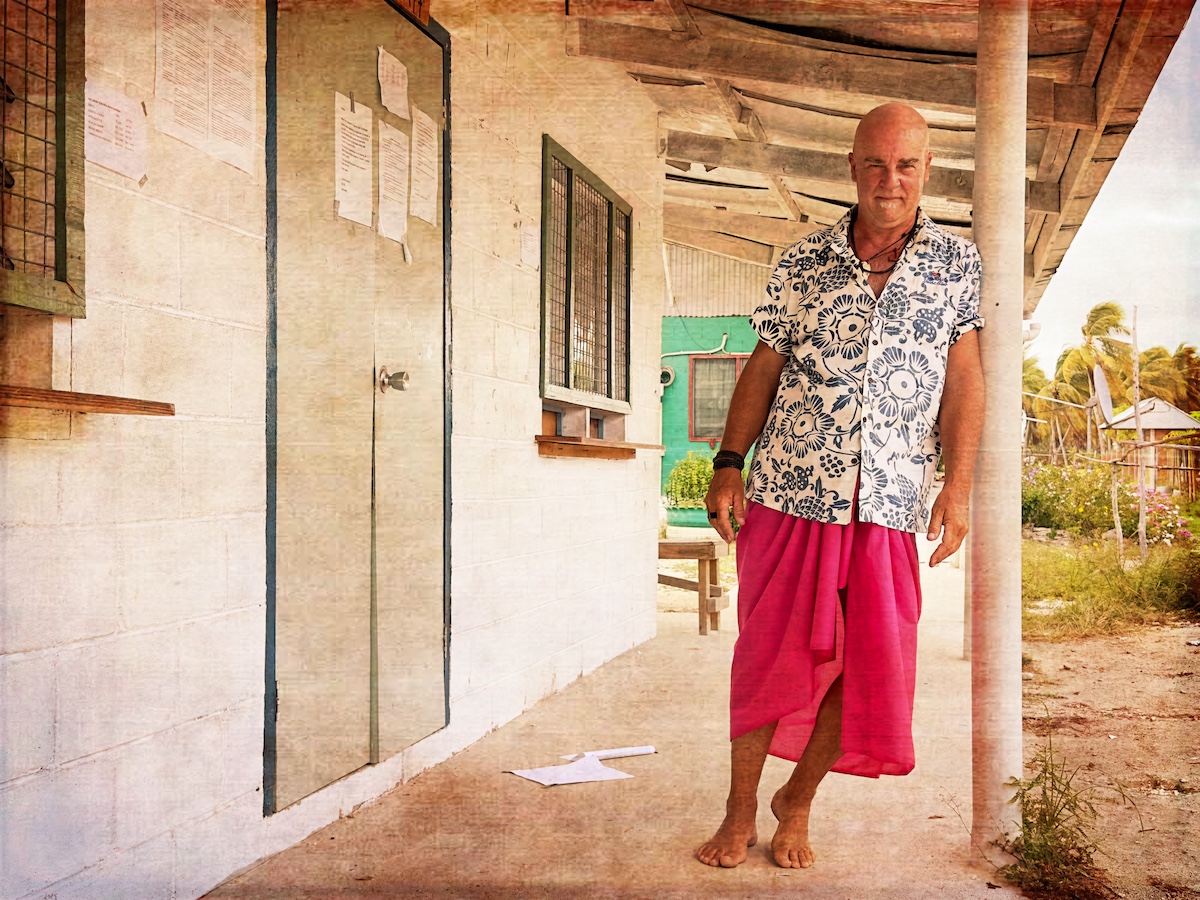
Sunday finest. I’d spied Tabure sporting a hot magenta lava-lava, while I was in Poland. Seems there’s an entire congregation that wears the color. Sorta punk rock and glam. Here in front of the LINNIX offices, pirating an internet connection.
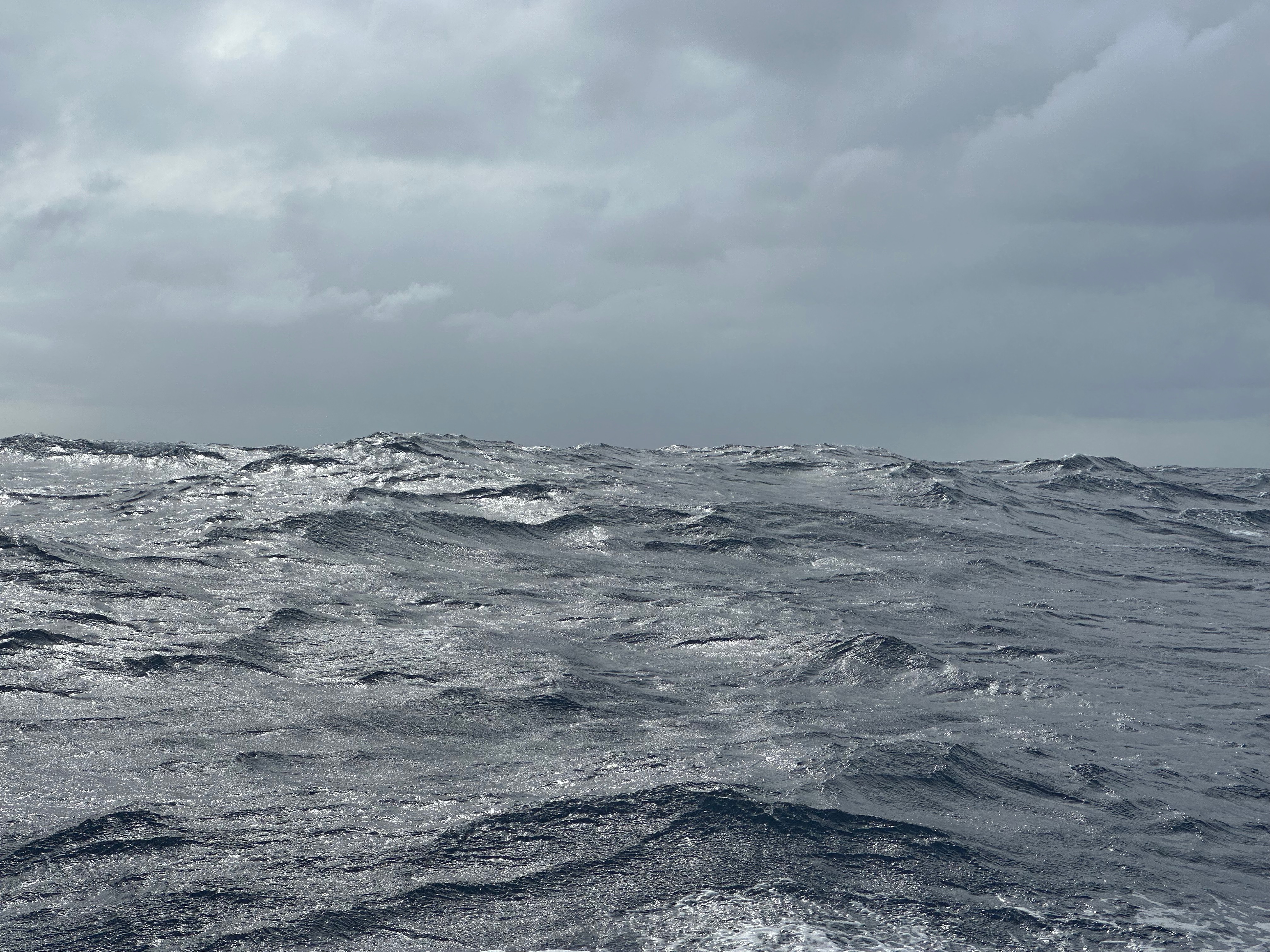
The doldrums were not as they lived in my imagination: relentless sun, baking down upon languorous seas. Instead, a dull mist, sullen and grey, shrouded the sky, when it was not raining. Winter doldrums, to be sure.
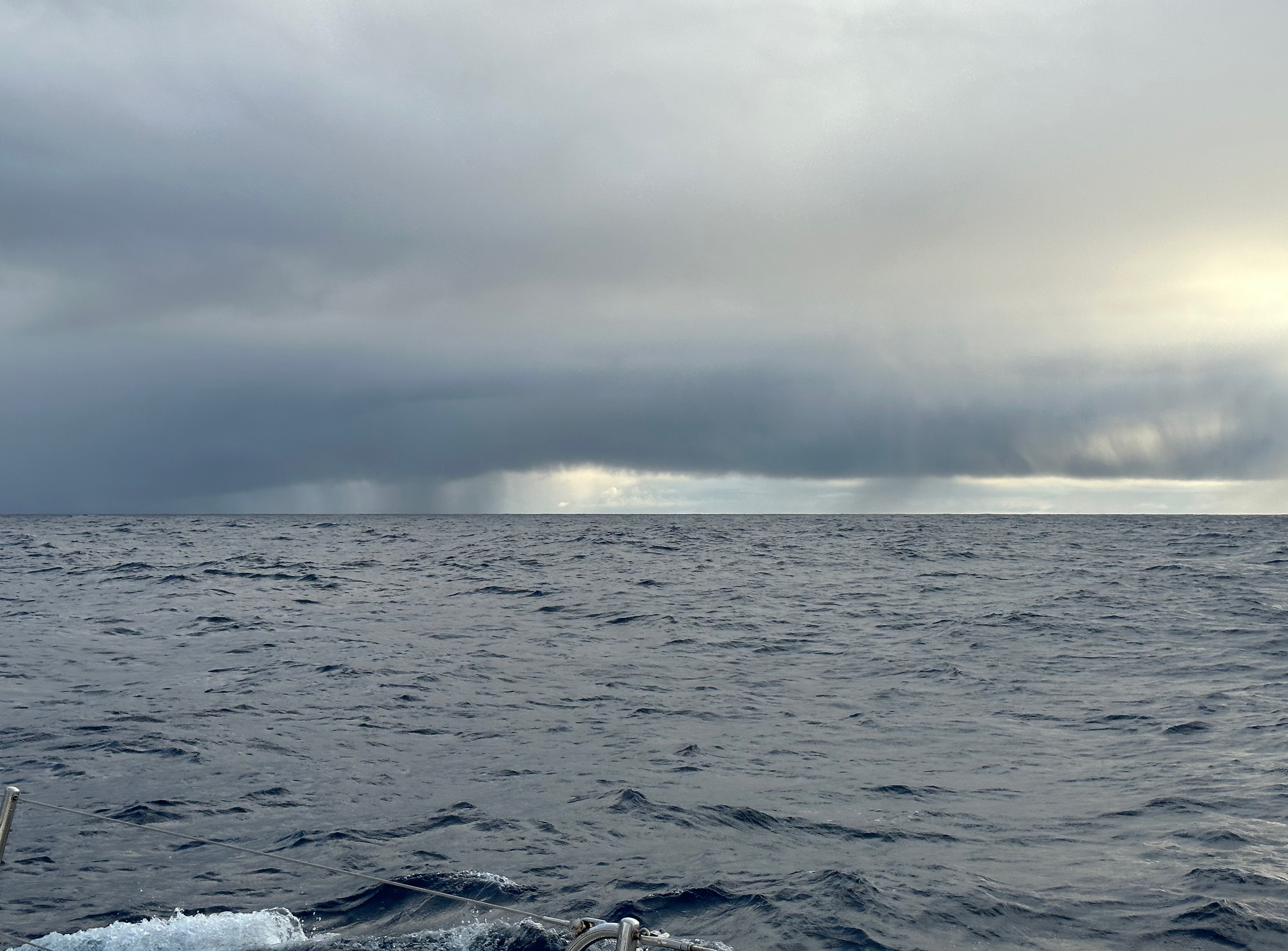
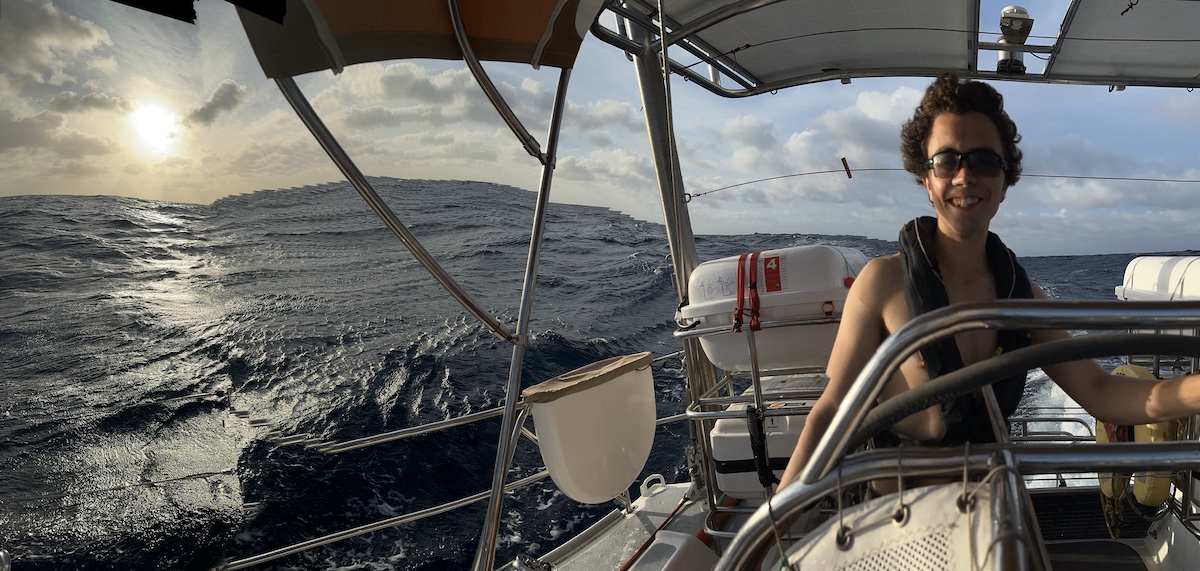
First Mate Tom Newsom, 24, from the village of Brockenhurst, not far from the Isle of Wight, on the southern English coast. Always good natured, his plans for further adventure after this sail, was to prepare for a race around the world. It’s Tom who smells the island smoke, miles and miles away, long before we see it.
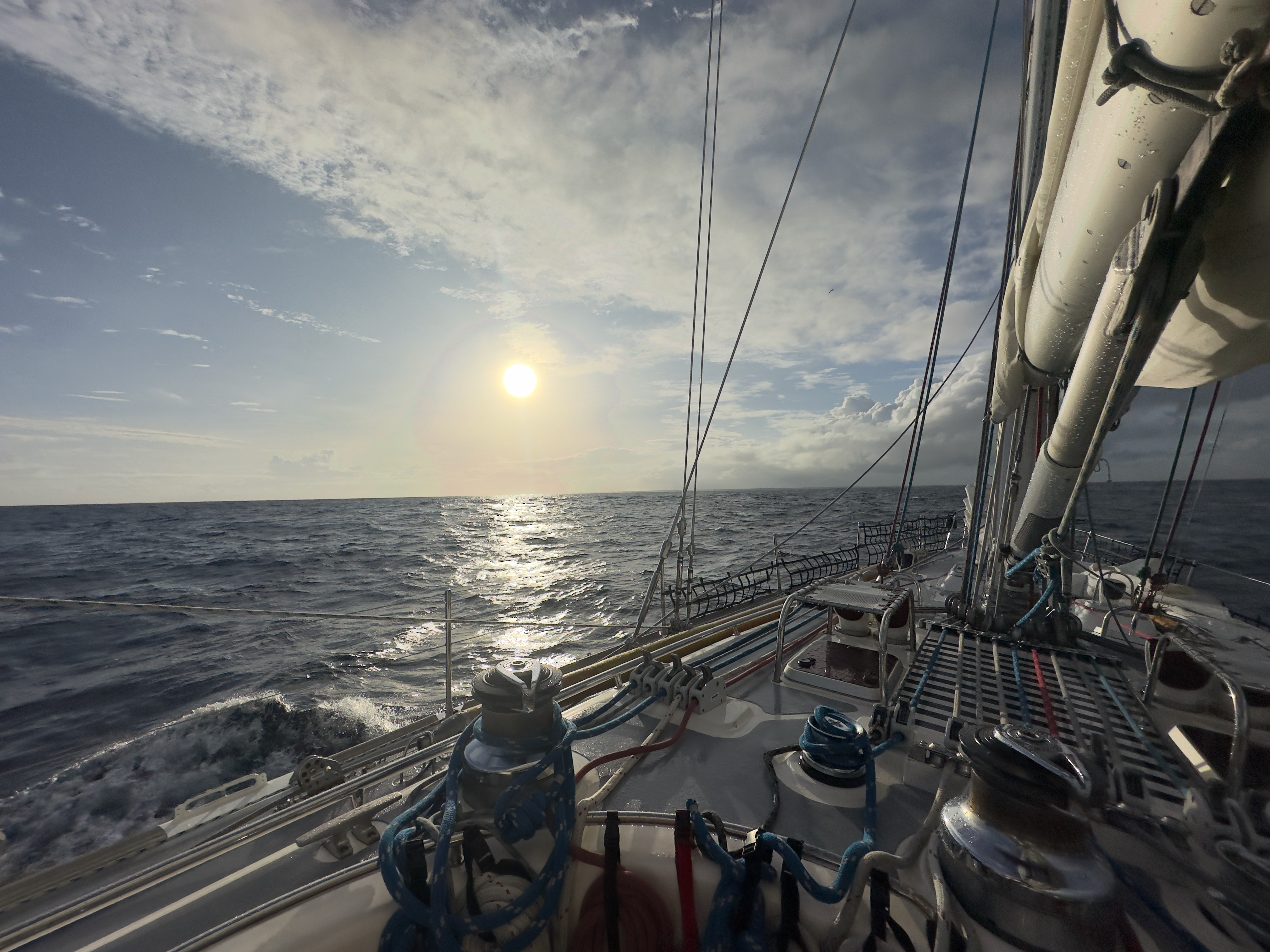
Land, HO!
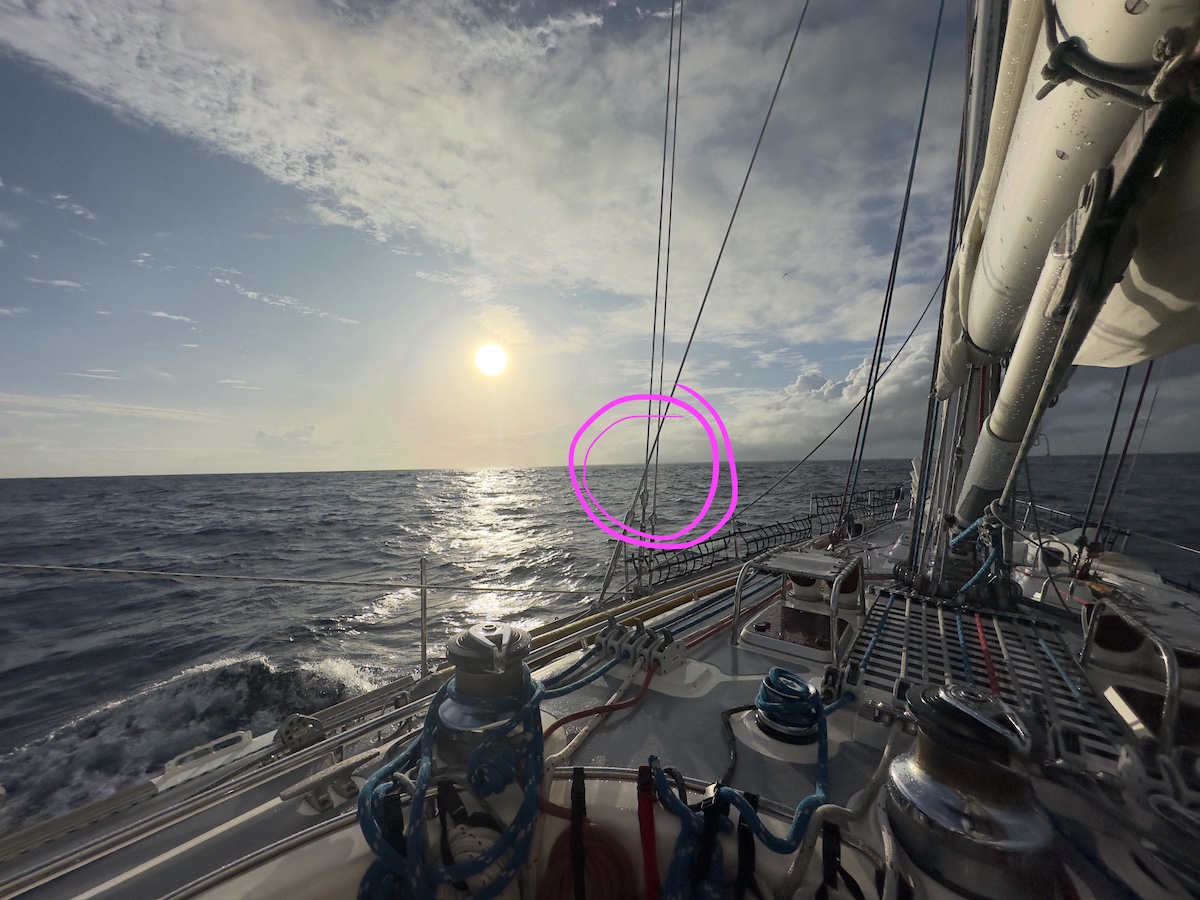
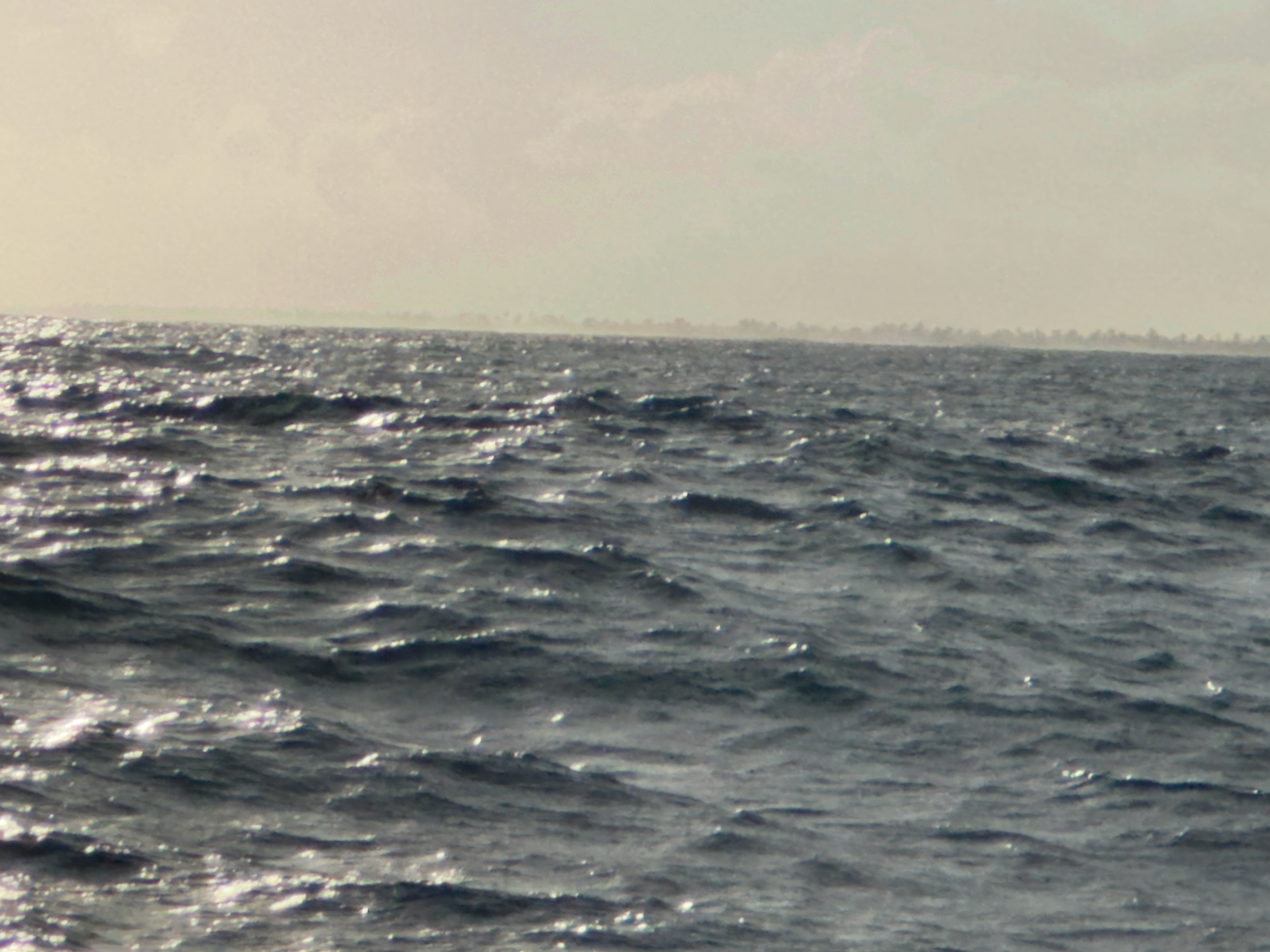
Just behind the standing rigging, where it intersects with the horizon, lies the northeast point of Kiritimati. Spotted at 7:10am. While I need glasses to read, I can see things at a distance better than most. It was a good feeling, to see a place I’ve imagined for decades, knowing my grandfather had also arrived there by sea.
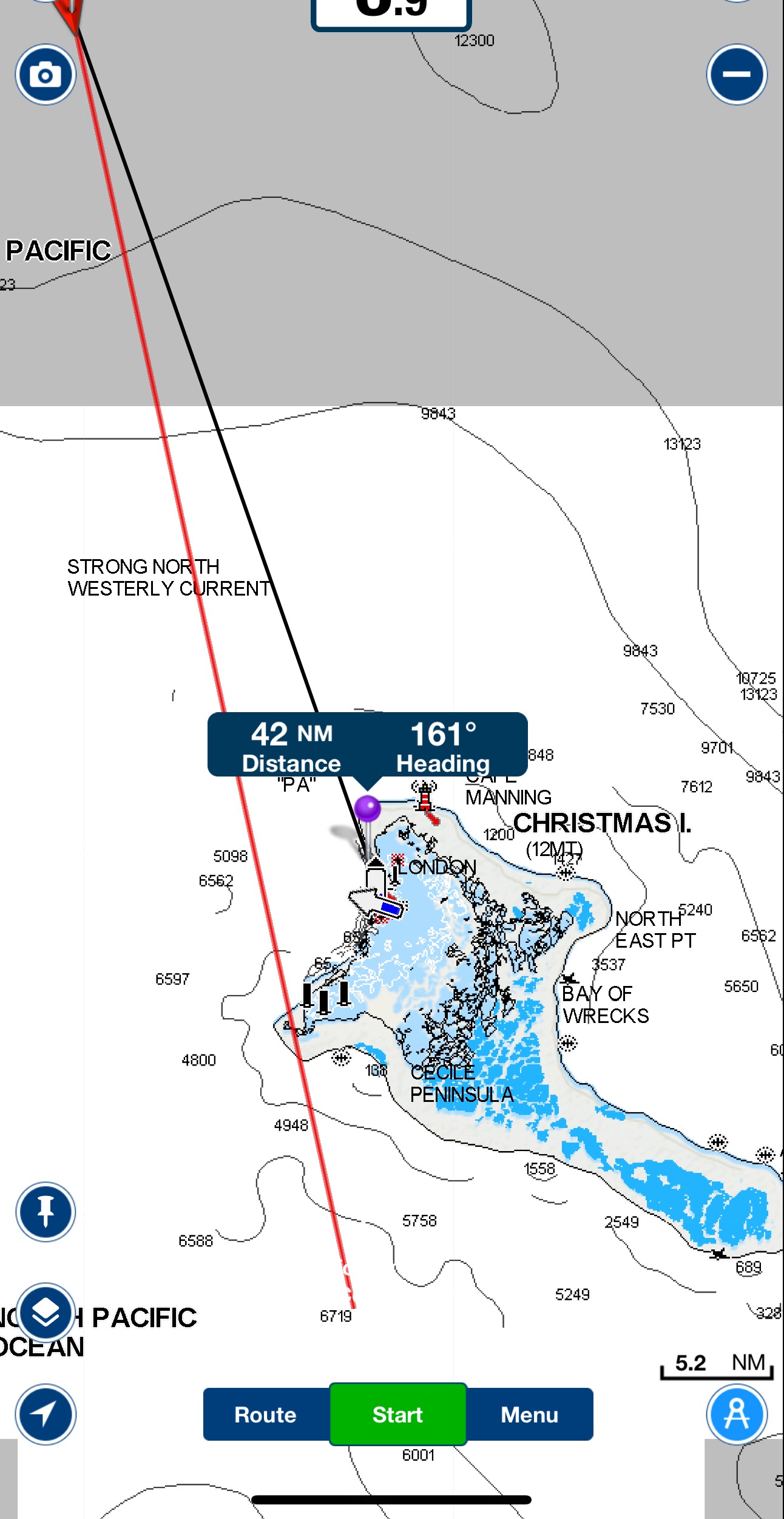
Closing in on the island at around 5 knots.
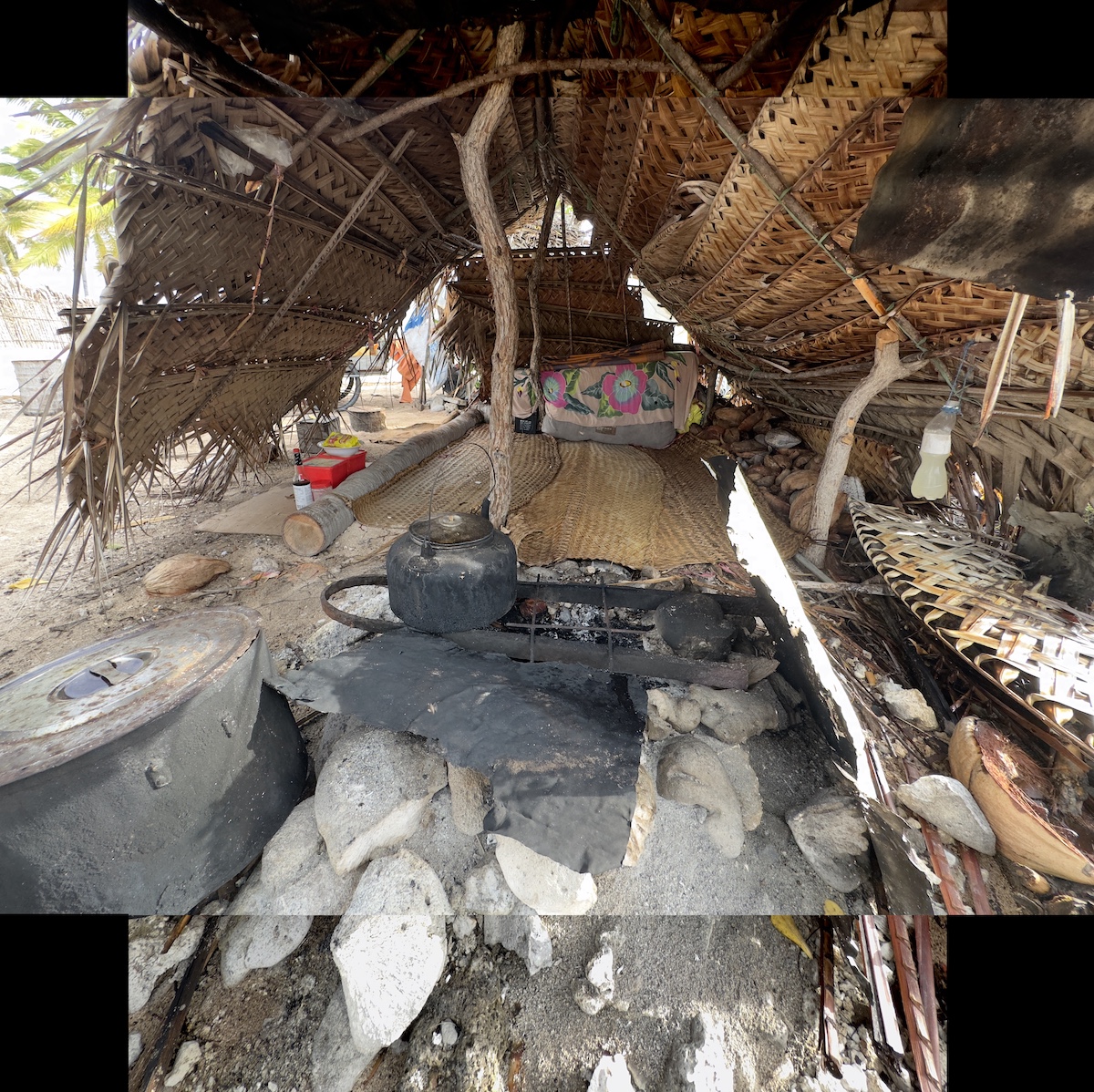
The dining room and kitchen of Iou Teeta and his wife, Tierebwebwe. They sleep in a similar and separate structure, just a few feet north of this, but on the occasions where I visit, they sleep here. On the right of the sleeping mats one can see the long pile of coconut shells used to fuel their simple fire. Repurposed metal serves as fire grate and cover, as needed, atop a frame of loose stones.